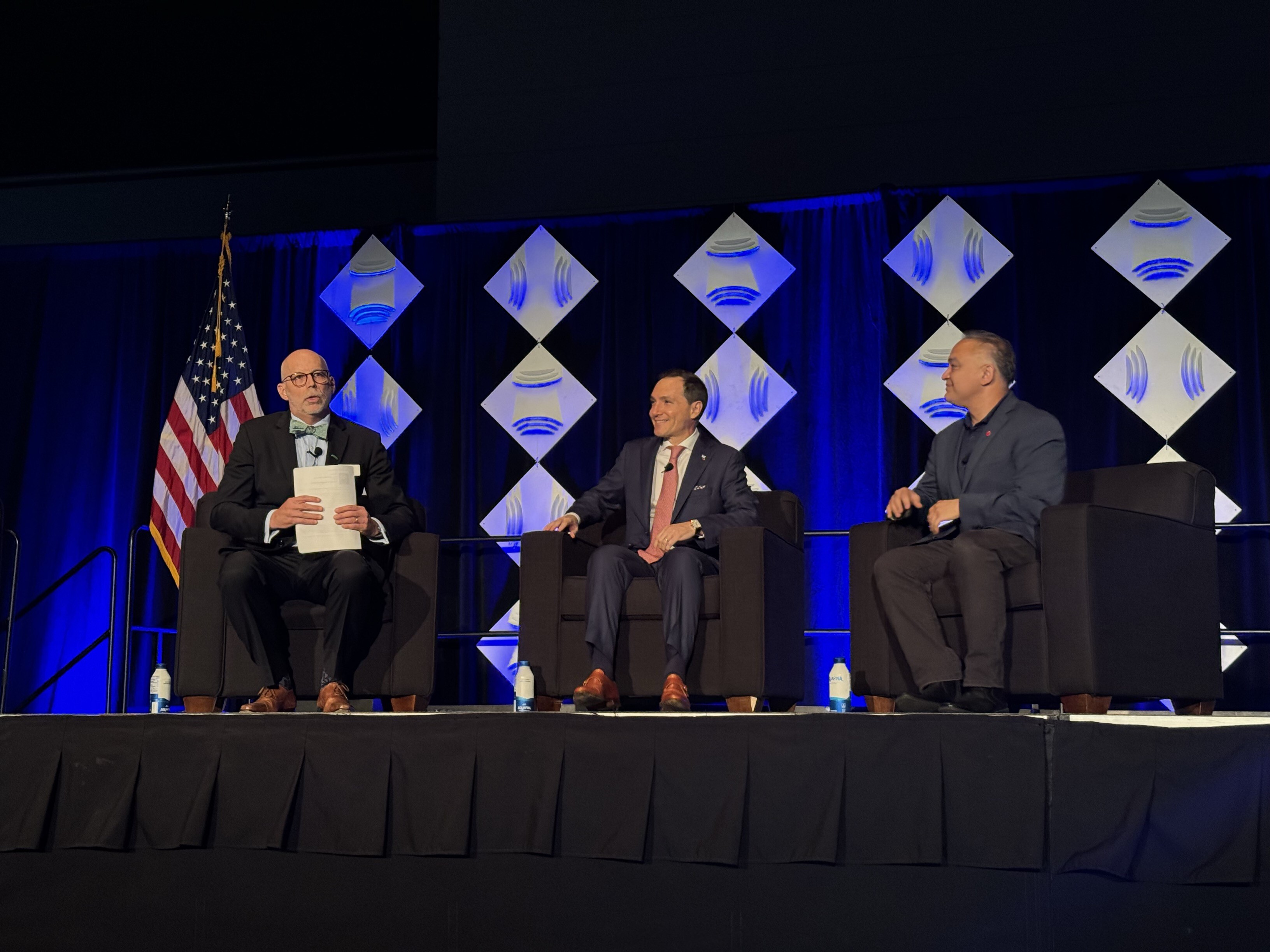How to Manage the COVID-19 Pandemic and Its Vaccine Rollout

"Martin, will a vaccine work?"
"When will all this end?"
"When can I hug my grandkids?"
These are all questions I get asked daily. Not surprising questions. Humans, at our core, are social animals. And right now, we are craving the normality that effective vaccines could provide.
At the Financial Times’ Global Boardroom event, while the questions were different, the sentiment was quite similar. Are we seeing light at the end of the tunnel? And what should we – governments, the health care industry, international bodies – be doing to stop this from happening again?
During the panel, I cited a number of items that should be on our global agenda, from tackling the root cause of pandemics to the importance of international leadership and a more coordinated response that I would like to see if there is a "next time."
These are all topics where I would like to see greater dialogue happening. Most pressing today, however, is vaccine hesitancy. Recent polls tell us 50% of Americans are unlikely to get vaccinated. In the UK, 36% of the population say they are unlikely to get vaccinated.
Our desires to return to normalcy depend on two vaccine-related things: vaccine efficacy, or lasting immunity, and uptake, or how many people get a vaccination. Although social distancing and masks will be with us for some time, vaccines are the longer-term solution – providing we get them.
The Gateway to Normality: What Do the Numbers Tell Us?
The 95% efficacy claimed for the Pfizer and BioNTech vaccines is promising, but more data gathering is needed before we can speculate what this means. Importantly, we don’t know if it confers lasting immunity or if older adults will be protected. If successful, it will be one of many COVID-19 vaccines that we use over the coming months and years.
Put bluntly, if a vaccine has 60% efficacy, we need close to 100% uptake, which is frankly impossible. If a vaccine is 80% effective, we still need 75% of a population to take it.
Vaccine efficacy, manufacturing and distribution at scale must be left to the experts. But when it comes to reducing hesitancy and boosting uptake, we all have a role to play. Hesitancy has been around for as long as vaccines. Age, religion, education and pure denial (e.g. It’s a hoax!) all contribute to reasons why people refuse vaccines. But vaccine hesitancy comes down to one thing: fear. People fundamentally want to know: Is it safe? People take medicine based on trust.
Since COVID-19 became a household name, there have been assurances that a vaccine will be the light at the end of a very long tunnel. It is the beacon of hope for all of us. Headlines and government pronouncements promised that it would be developed and manufactured faster than ever before for what is a new and untested science. Without considering the unintended consequences of this well-intentioned narrative, our leaders have taken the embers of fear (because distrust was already there), and poured petrol over them.
Increasing vaccine hesitancy should not be a surprise to any of us. But what it means is we need to start building trust – quickly.
Building Trust – What Does It Take?
Trust in government, industry and institutions is low. We only follow leaders we trust, particularly in a crisis.
Building trust is going to take time and requires a top-down and bottom-up approach. Governments must provide the resources, but the convincing should be left to trusted communicators. These are community and religious leaders, social media influencers, local doctors, social workers, nurses and student leaders. People who are already trusted by their communities and peers. Once these people are identified, we must take the following steps:
- Listen first. Rather than criticize those who are hesitant, we must listen before talking. We must first understand before being understood. What questions do they need answered? What information do they need?
- Educate through transparency. The pharma industry must help people understand the world of vaccines. We must describe the development and regulatory process, and how vaccines are tested in clinical trials. The protocols should be widely published. We must explain how vaccines are made, quality control tested and distributed. Above all, we must be clear about how safety, quality and efficacy are challenged, checked and assured. Transparency includes what happens when things go wrong and how problems are solved. We must be honest – there is no such thing as a 100% safe vaccine. We must therefore describe how risks are identified and mitigated.
- Communicate not just the "what," but also the "how." The message must be understood so people can come to an informed decision. We must avoid scientific and regulatory jargon, and train our trusted, community leaders on how to deliver these messages. We must:
- Allow them to customize the message to meet community needs. A one-size-fits-all solution won’t work.
- Think about creative ways to communicate—a virtual tour of a typical vaccine plant? Chat rooms with industry experts?
- Why not include COVID-19 patients or those who have lost family members? Also think about mental health. Let those experiencing prolonged COVID-19 chronic fatigue explain how it feels.
- And finally, we must tackle any vaccine misinformation head-on, not by arguing, but by debating the facts.
About the Author
Martin Lush, a microbiologist by profession, has over 30 years’ experience in the pharmaceutical and health care industry working with clients in over 50 countries. He has held senior management positions in QA, manufacturing, QC and supply chain auditing, and has conducted audits and education programs for many hundreds of companies in over 25 countries. Currently, he leads the Global Health Sciences division for NSF. You can follow him on LinkedIn.
Watch the panel session in full:
NSF Can Help Businesses of All Sizes
NSF has been helping companies throughout the pandemic. Learn how we can help you navigate the current uncertain business environment.
How NSF Can Help You
Get in touch to find out how we can help you and your business thrive.

What’s New with NSF

NSF Shanghai Named Critical Site for NSF/ANSI 455 and NSF/ANSI 173 by ANSI National Accreditation Board
July 26, 2024
NSF Takes Center Stage at NEHA Annual Education Conference
July 25, 2024
NSF Asia Pacific Showcases Hospitality Solutions at THAIFEX HOREC Asia 2024 in Bangkok, Thailand
July 4, 2024